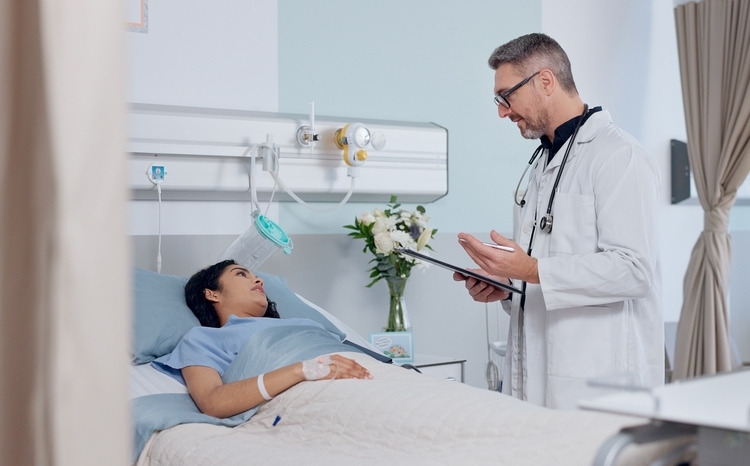Study to explore digital weight management support for obesity
- 16 December 2024

- A study from the University of Warwick is looking at how an app and remote consultations could help the NHS support people living with obesity
- Researchers will compare the effectiveness of the digital pathway utilising the Gro Health W8Buddy app built by DDM Health, and traditionally delivered NHS specialist weight management services
- The study, funded by the National Institute for Health and Care Research, includes 450 patients across four hospital sites in Coventry, London, Birmingham, and Wales
A study from the University of Warwick is planned to examine how an app and remote consultations could help the NHS support people living with obesity.
University of Warwick researchers will compare the effectiveness of the digital pathway utilising the Gro Health W8Buddy app built by DDM Health, and traditionally delivered NHS specialist weight management services, aiming to improve patient access to care and reduce health inequality.
The study is to start recruiting patients in May 2025, with recruitment lasting around six months and the findings to be reported in autumn 2027.
Obesity, which affects more than a quarter of the UK population, can lead to severe complications, including diabetes and heart disease, but access to NHS weight management services remains inconsistent across the country.
Dr Petra Hanson, clinical lecturer and study lead at Warwick Medical School, said, “This is about finding innovative ways to improve access and ultimately health outcomes for different groups of people, including those from diverse age groups and ethnic backgrounds.
“With thousands of people on waiting list for specialist weight management services, we need to change the way we work.
“We want to know if digital pathways like W8Buddy can be incorporated into NHS treatment pathways, we don’t want to replace traditional care, but instead use digital tools to improve choice and augment the way we work.
“This isn’t just about the technology; it’s about giving people choice and evidence-based tools.”
The study, funded by the National Institute for Health and Care Research, will examine the outcomes of digital and traditional approaches with 450 patients across four hospital sites.
Researchers will track key outcomes such as weight loss, quality of life, treatment speed, use of other healthcare resources, and overall health improvements over 18- and 24-month periods.
Participants will shape how the digital pathway will be incorporated into NHS care, by sharing their experiences through surveys, interviews, and focus groups.
By helping researchers understand how to tailor the digital pathway to better meet individual needs, the aim is to create a system that is user-friendly, effective, and widely accessible.
The study brings together University Hospital Coventry and Warwickshire, Warwick University, and DDM Health.
Hospitals in Coventry, London, Birmingham, and Wales were selected as recruitment sites for their diverse populations, ensuring the research reflects a wide range of patient experiences.
Researchers say that the findings could pave the way for significant changes in NHS policy, demonstrating how digital solutions like W8Buddy can be integrated into NHS to innovate and complement traditional services.
They hope that if successful, W8Buddy could represent a scalable and cost-effective option for tackling obesity nationwide, offering patients a modern, flexible way to manage their health.
In August 2023, the National Institute for Health and Care Excellence recommended the four digital programmes Oviva, Liva, Roczen and Second Nature, as safe, effective and cost-efficient ways of managing complex obesity cases.




